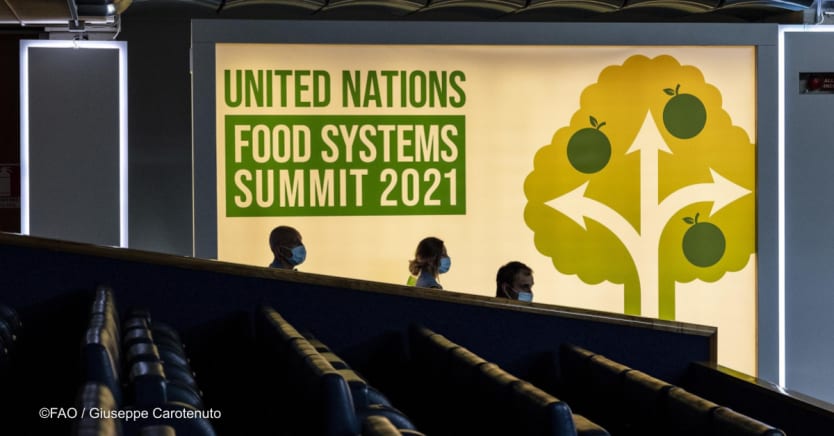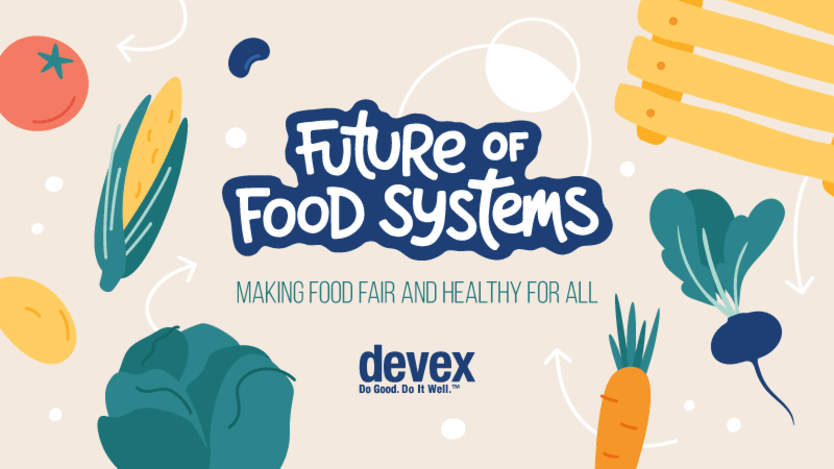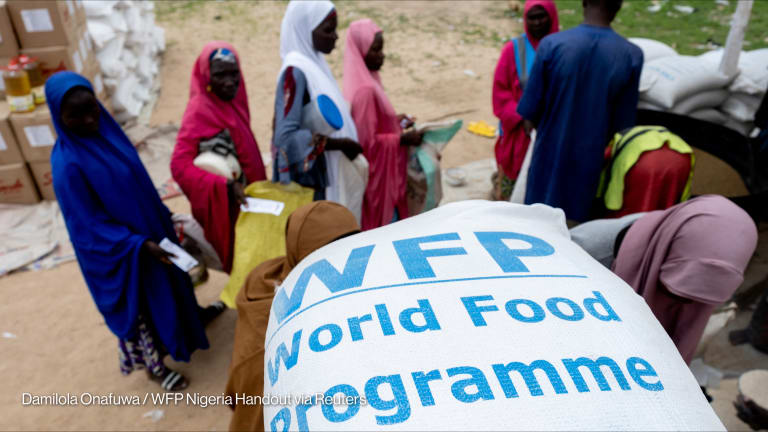Opinion: Can good governance save the Food Systems Summit’s promises?

Held in September, the first United Nations Food Systems Summit presented a historic opportunity to leverage the power of food systems to drive our recovery from the COVID-19 pandemic and get us back on track to achieve all 17 Sustainable Development Goals by 2030.
In the intervening weeks, we have been pondering how it has impacted the SDG agenda. Did the summit move us forward to achieve those goals, or did “Big Food” and poor governance get it in the way, and make it fall short of these ambitions?
The preparations for the summit saw business take center stage in the development processes — many of the same businesses which undermine public health efforts and contribute directly to diet-related ill health. The food systems summit saw numerous instances of corporate capture, particularly when providing an enabling platform for businesses to greenwash their reputations and pledging financial commitments to tackle hunger.
Actions need to be taken to ensure accountability measures are strengthened to deliver a lasting legacy from the summit.
—Tellingly, we’ve seen “Big Food” position the private sector at the heart of the delivery of the Sustainable Development Goals, against a backdrop of worse health outcomes for people living with obesity and diet-related noncommunicable diseases: cancer, diabetes, and cardiovascular disease.
The concerns of the UNFSS were its opaque inner workings and the overall lack of transparency of stakeholder participation in the preparations, as well as the absence of information about next steps.
Conflict of interests
The lack of good governance principles adopted by the summit has drawn criticism from a range of actors, including Michael Fakhri, the United Nations’ special rapporteur on the right to food. He questioned the efforts to include business in the summit’s process, asking how the industry can be part of the solution when they are part of the problem.
As newly formed coalitions emerge from the summit to deliver action, particularly The Coalition of Action for Healthy Diets from Sustainable Food Systems for Children & All and the School Meals Coalition, we ask what more can be done to address the conflicts of interest. We believe there are two main opportunities to seize.
Firstly, if the summit is to fulfill its core principles of embracing multistakeholder inclusivity and building trust, food systems governance needs to be enhanced by robust principles of engagement going forward. They should at least meet the standards outlined in the principles of engagement developed for the Nutrition for Growth Summit or the principles for managing interactions with the private sector by the U.N. Standing Committee on Nutrition.
This calls for a clear definition of “conflict of interest” to identify and manage it and ensure independence from commercial interests. The UNFSS failed to adopt sufficiently strong principles of engagement.
Part of our Future of Food Systems series
Find out how we can make food fair and healthy for all. Join the conversation using the hashtag #FoodSystems and visit our Future of Food Systems page for more coverage.
Secondly, we feel that necessary steps need to be taken so that the coalitions assess the risk of engaging with industry based on the implications on the environment, human rights, and crucially, public health. The same safeguards put in place for the planet can serve people too. As such, we question whether business entities should be represented in the coalitions of action given the possibilities for conflicts of interest.
There are, however, opportunities to manage conflicts of interest as the 26 coalitions of action are still currently works in progress. The healthy diets coalition has, for example, included a very welcome clause, in regard to its structure and governance, where nonstate actors involved must adhere to the International Code of Marketing of Breastmilk Substitutes and commit to responsible marketing to children.
We need to see more of this and continue to ask how emerging coalitions are being formed: who ideated them, decided their priorities and membership, and funds them, as well as what their affiliations are.
Accountability: A game changer
Moving forward, actions need to be taken to ensure accountability measures are strengthened to deliver a lasting legacy from the summit. We need more information about how the summit’s outcomes, such as the coalitions and the registered commitments, will be monitored. It is welcome that the civil society-led Accountability Pact is acting as the stand-in until official mechanisms are set up.
However, we support the calls for robust monitoring frameworks to hold governments accountable and keep commitments from falling through the cracks. We believe that with these frameworks, the summit’s success can materialize in the form of national commitments and strategies guaranteeing equitable, healthy, and sustainable food systems.
As we watch coalitions take form during this foundational stage, we need to set strong principles of engagement to protect policy and commitment processes from vested interests. We need to keep the U.N. Food Systems Summit from setting an unwelcome precedent by allowing commercial interests to sit at the heart of global efforts to transform our food system.
Visit the Future of Food Systems series for more coverage on food and nutrition — and importantly, how we can make food fair and healthy for all. You can join the conversation using the hashtag #FoodSystems.

Search for articles
Most Read
- 1
- 2
- 3
- 4
- 5









